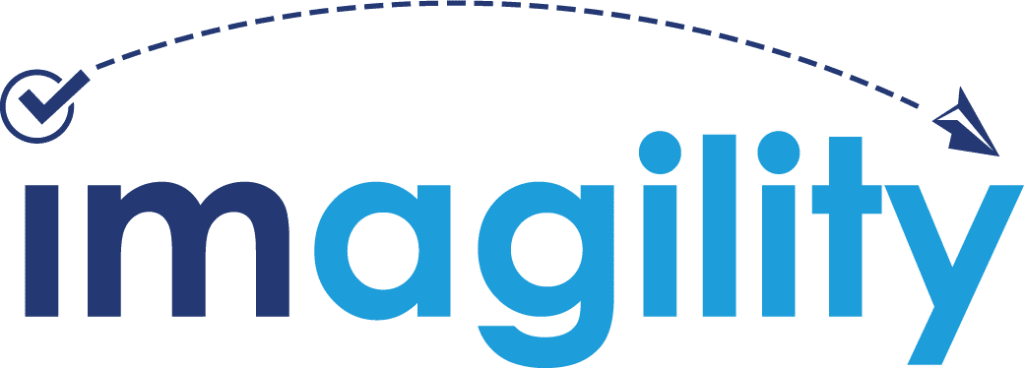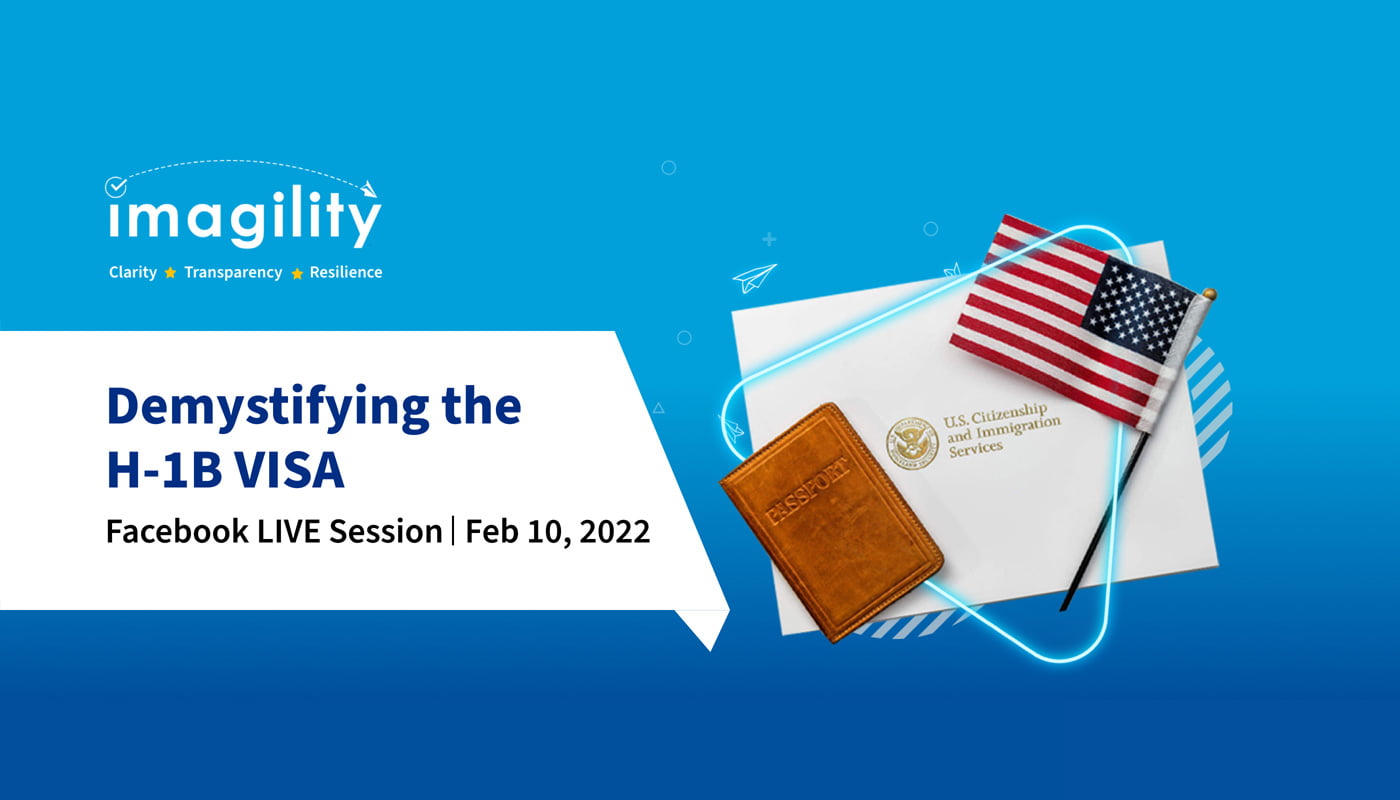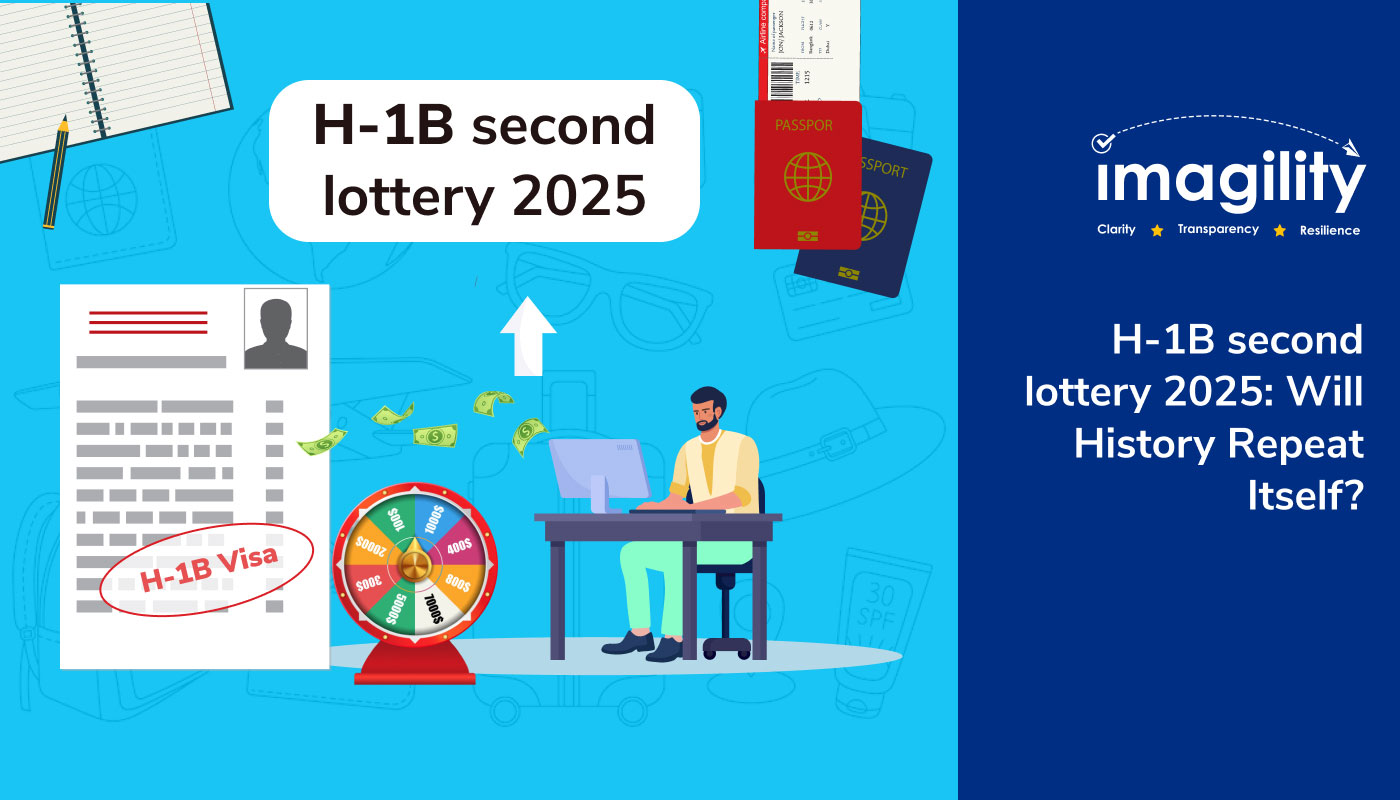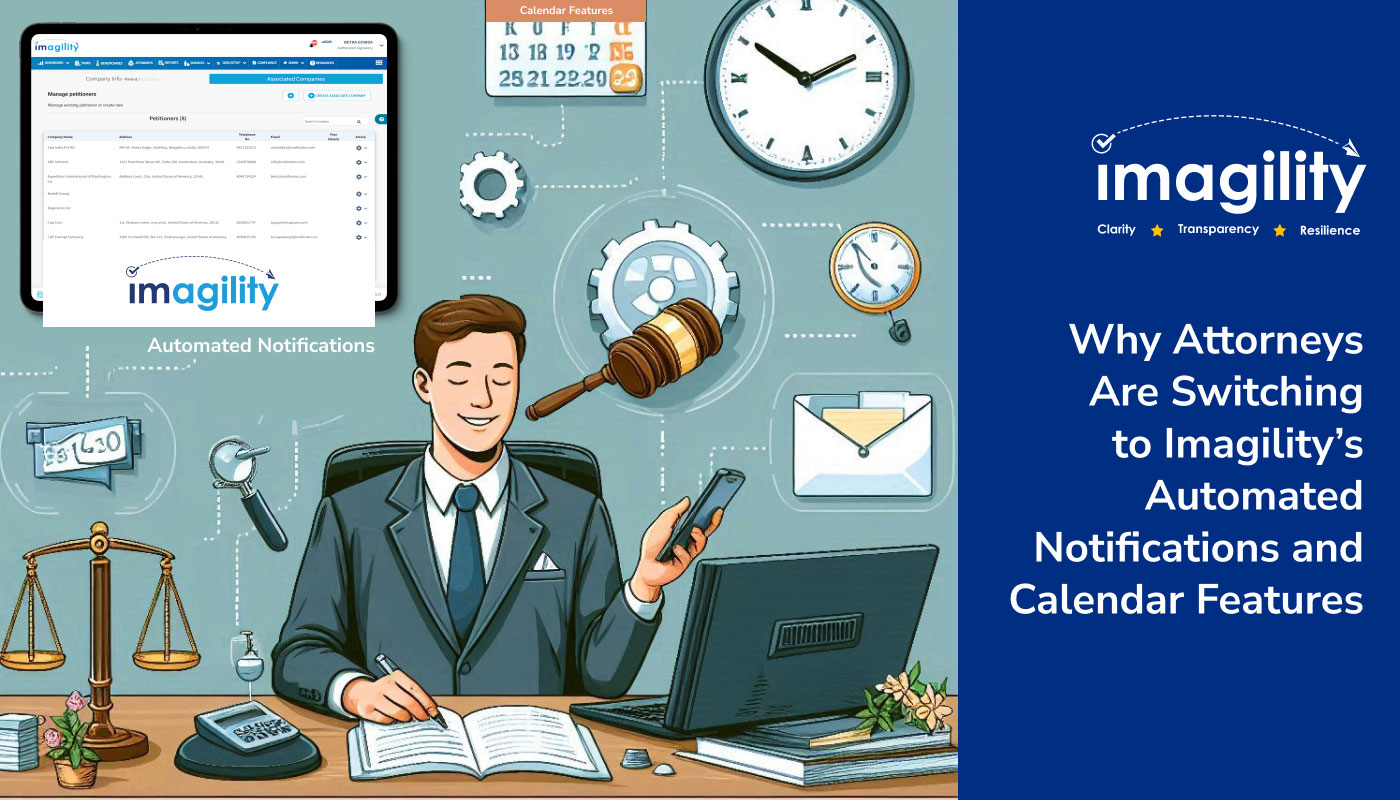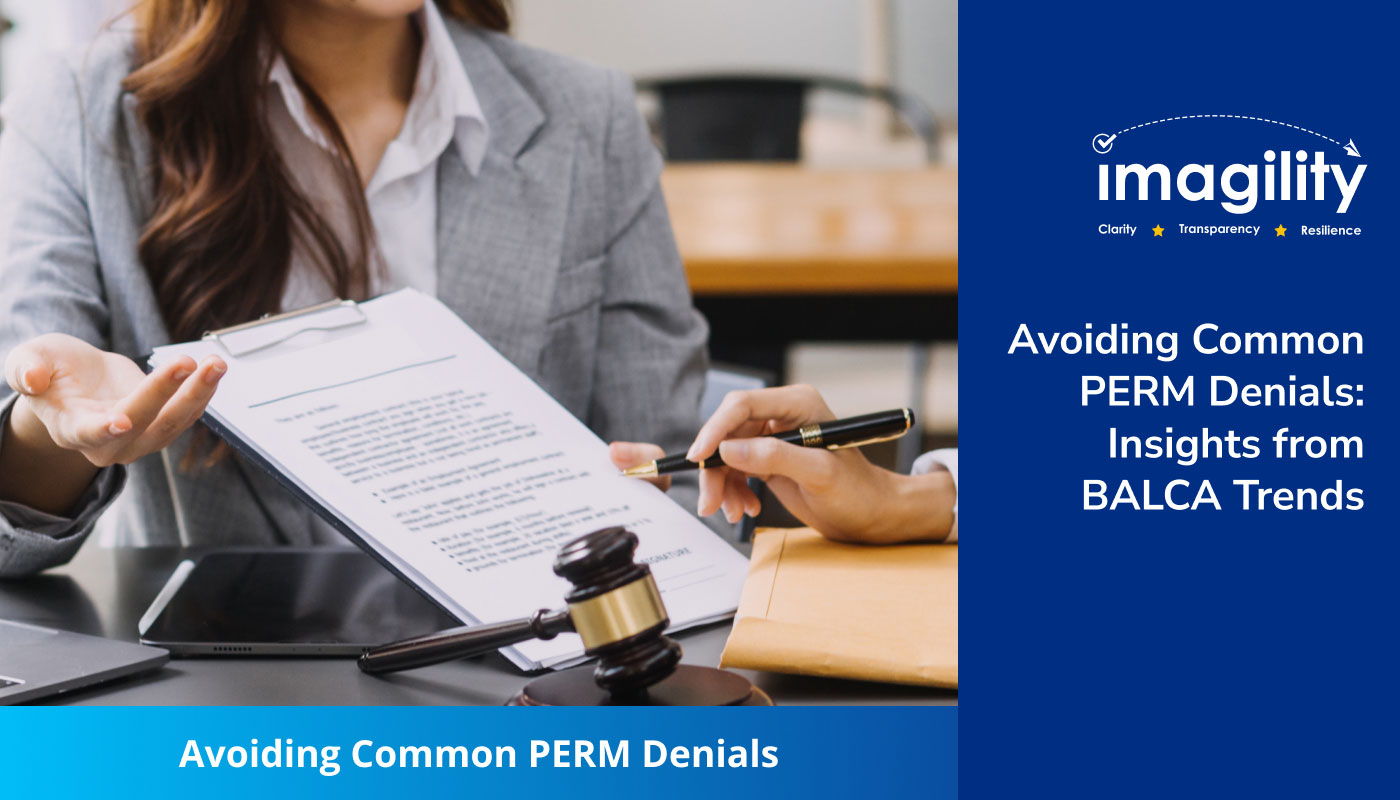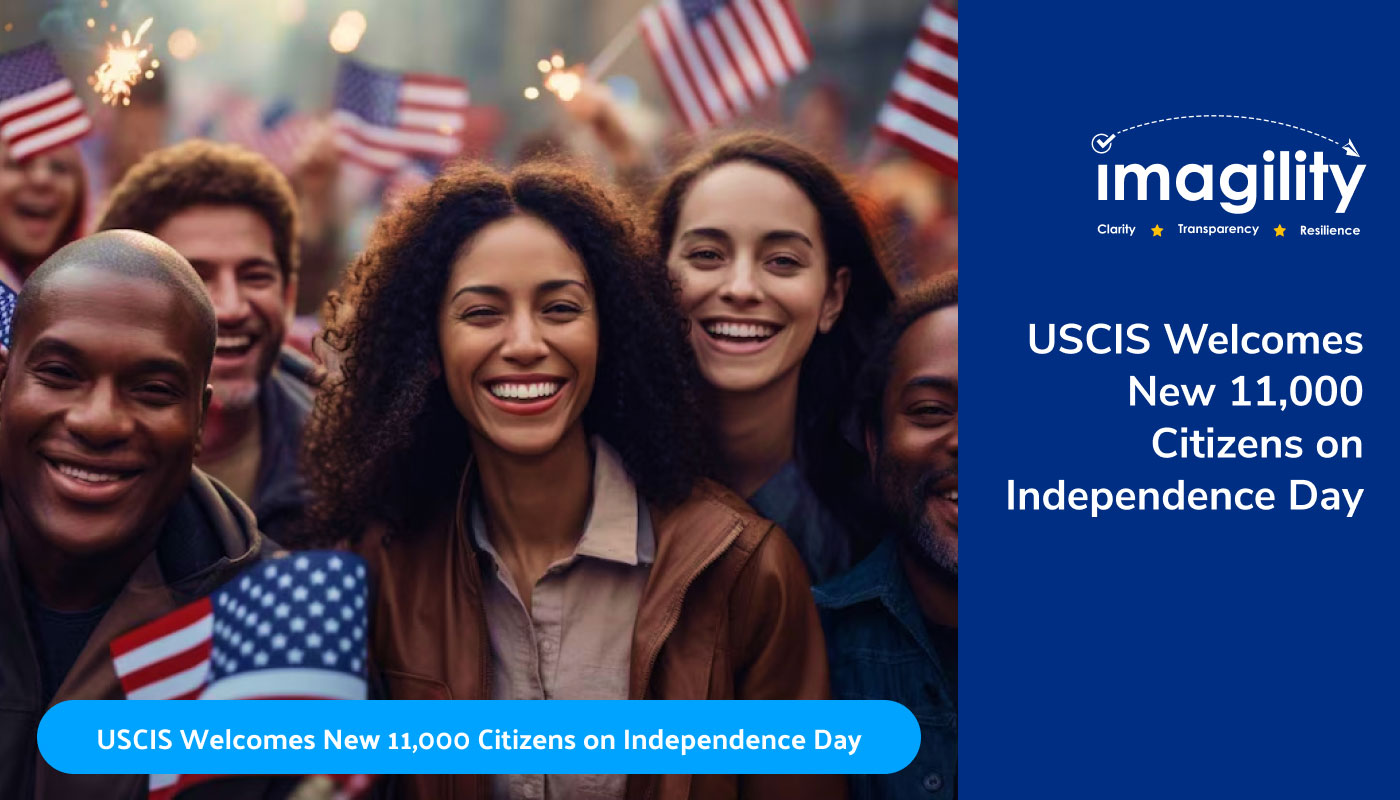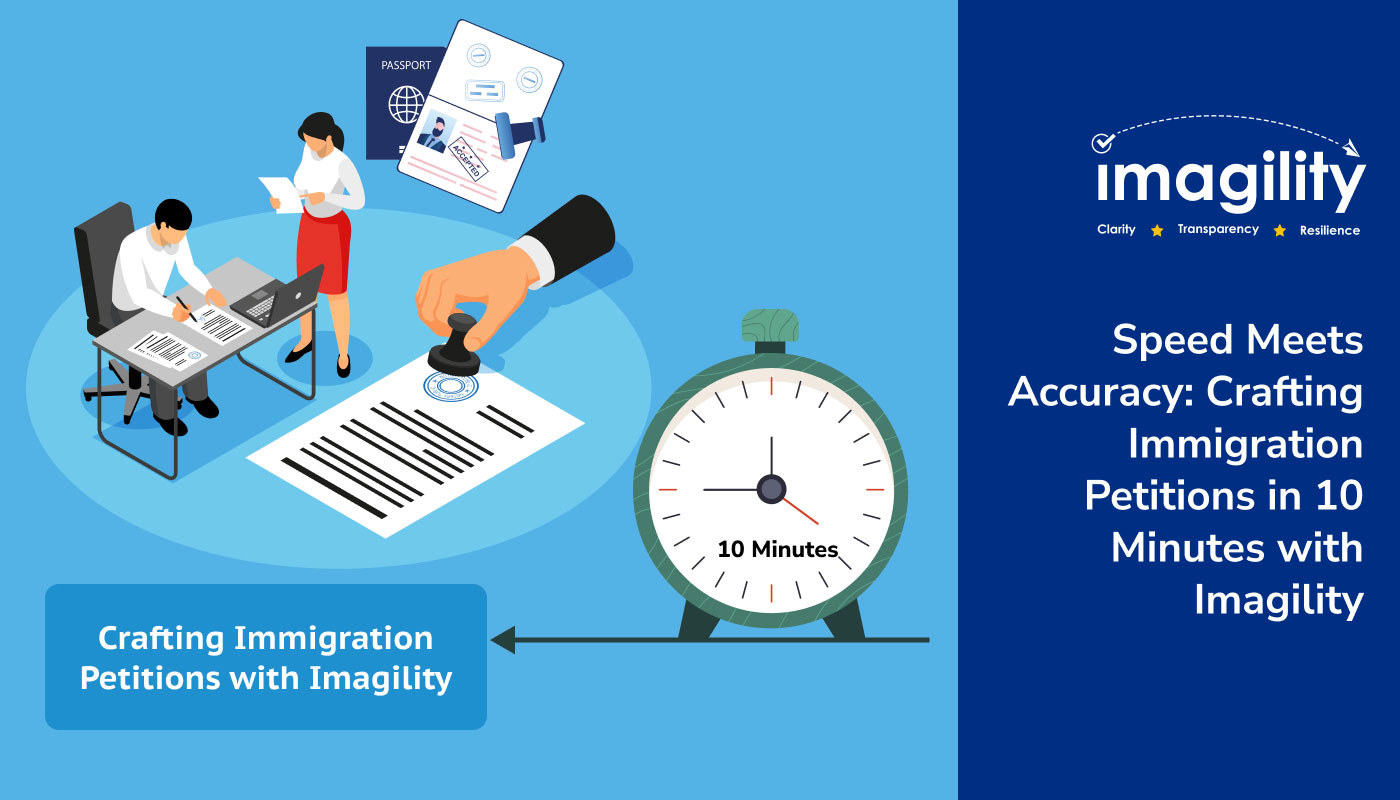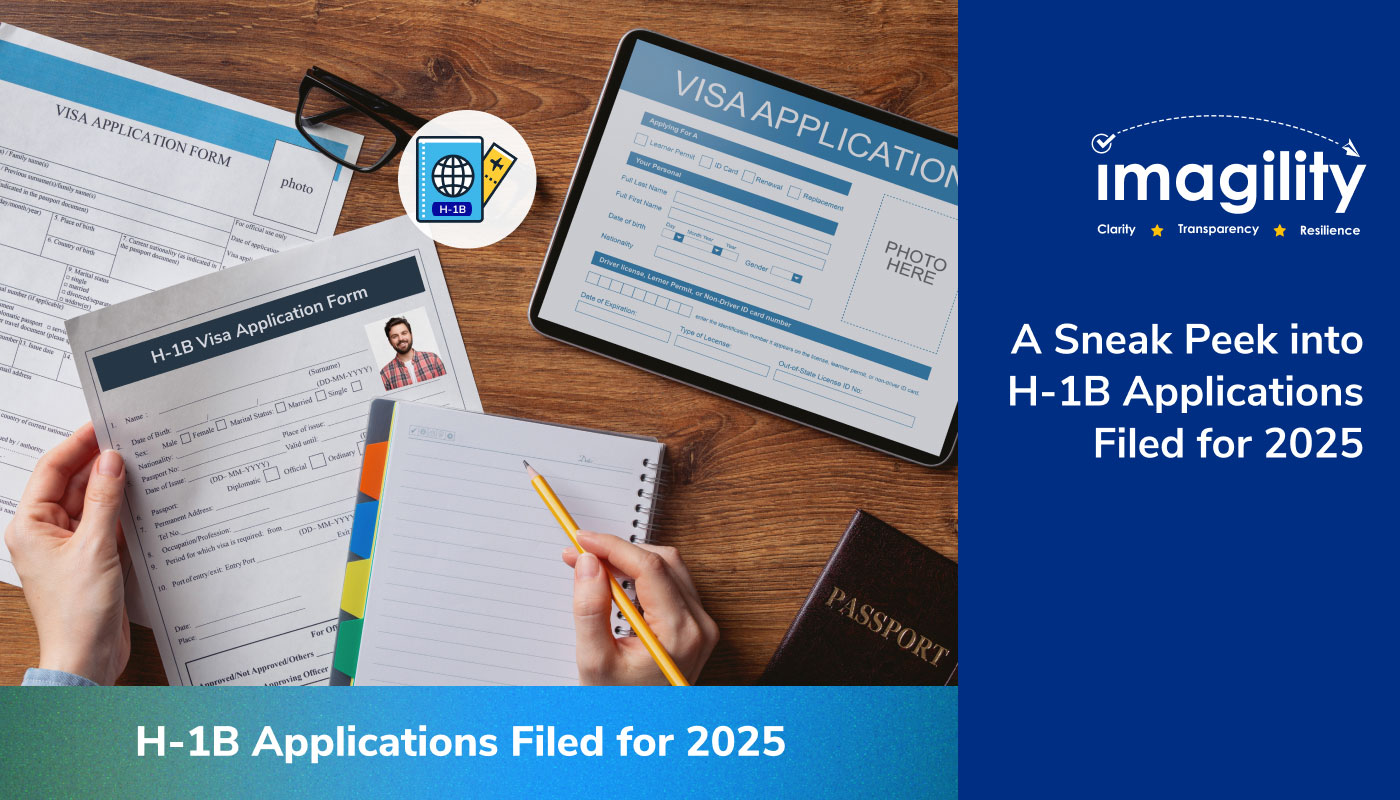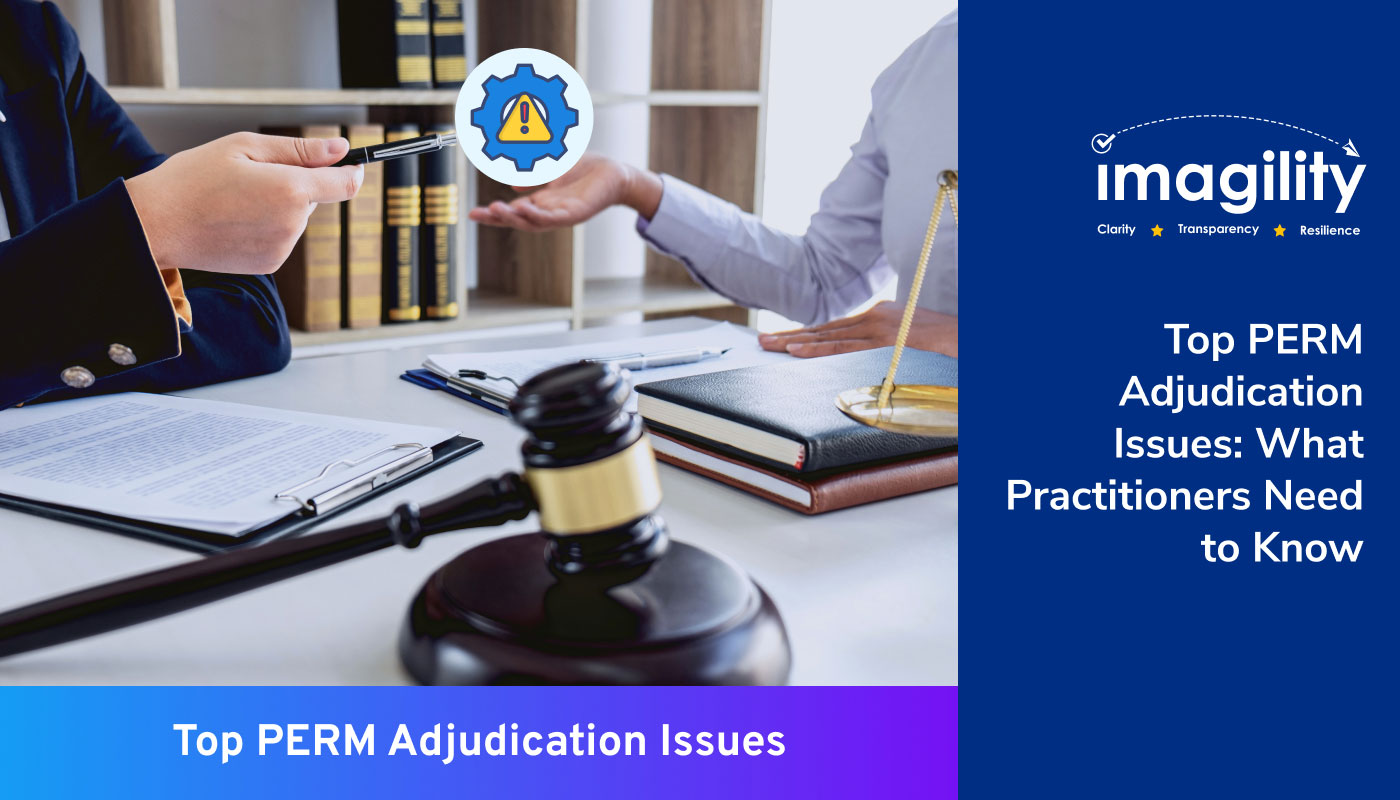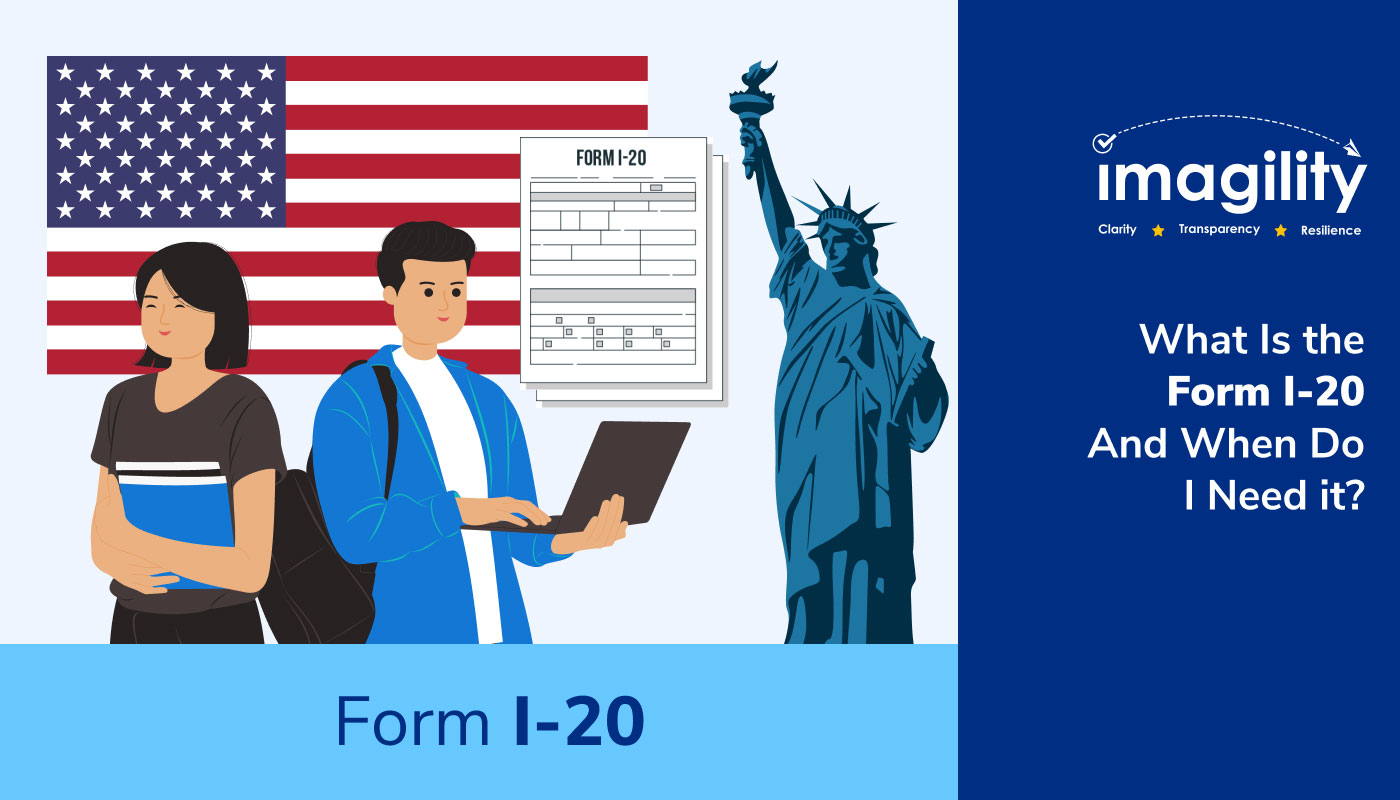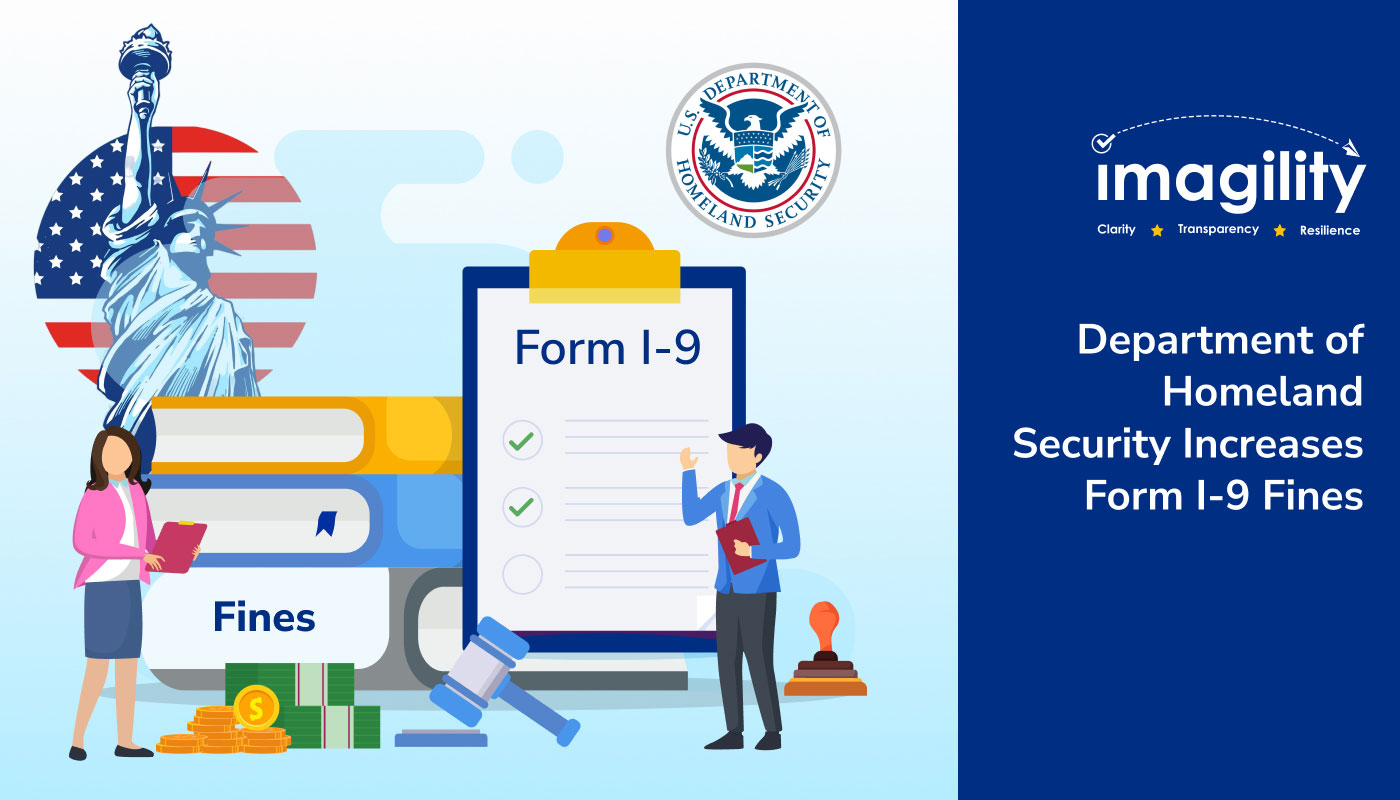This FB LIVE Session with our Immigration expert and our expert Attorney clarified many queries from the audience about the H-1B visa. We are posting the transcript here so you could look up the questions that are foremost in your mind and get answers to them quickly. The session recording is also uploaded here for your convenience.
About our Expert Attorney Seth D. Miller, Esq.
Seth D. Miller, principal of the firm, is an immigration law specialist with more than 25 years of experience. His experience in the field of immigration and nationality law is broad, both in terms of clientele and practice areas. His practice spans the entire United States and many other countries. His clients have come from every continent and have included a full range, from multi-national corporations to start-up companies and individuals, and from all educational and cultural backgrounds. His experience includes both business and family-based immigration and non-immigration services. Attorney Seth Miller is a member of the American Immigration Lawyers Association (AILA), the Massachusetts Bar, the U.S. District Court for the District of Massachusetts and the U.S. Court of Appeals for the First District. He is admitted to Massachusetts, Connecticut, and various federal bars.
Transcript
John: We are at a time where USCIS has started accepting registrations for the Lottery process. Eagerly expected by applicants…..Let’s begin with questions from the audience.
Questions from Audience
Kavitha: Process has changed from 2020. Register first with USCIS. Petitioners need not submit the entire petition upfront, its only after the lottery selection this is done.
Kavitha: For a H-1B holder, once he has the approval of the H1 and subject to the stamping, if in case he is outside the US, will have a tenure of 6 yrs clock on his side to stay in the US. This is going to be in 2 parts of 3 yrs and an additional 3 yrs. Right after that in case he wants to continue to stay, he has to have had a green card process initiated with a labor approval.
Seth: 6 yrs, 3 yr intervals, maximum per session. Just because you apply for a 3 yr period, doesn’t mean you get a 3 yr period. You could get only 1yr, 2 yr, upto 3 yrs the first time. Again 1, 2 or 3 yrs the second time, for maximum term period of 6 yrs. Under AC21, portablility laws for H-1Bs, if you have labor pending for 365 days for your GC or i-140 which is an immigration petition, you are allowed to stay either 1 yr beyond your H-1B’s 6 yrs and continue it with 1 yr extensions, until you get your GC. Or 3 yr extensions if you get your approved i-140, with 3 yr extensions, until you get your GC. The reason they did this is they felt the immigration system was so slow. It was forcing people to go back to their home countries when they were working for companies for 6 yrs. So they allowed to go beyond 6 yrs. But if you want to go beyond 6 yrs, you have to have either a labour certification pending for 365 days or I-140 immigrant petition approved.
Seth: Only way you need not apply for the lottery is if you already have an H-1B visa. Or if you are going to be working for a govt research institute, or an institute of higher education, they are cap exempt categories.
Kavitha: This is how it works. If a candidate wants to apply for an H-1B, he has to go through a company, university or hospital, typically a non-profit organization who will have these H-1Bs available, outside the cap.
Kavitha: For the H-1B visa, in case this is for the IT fraternity, typically requires a person to have a minimum of a bachelor’s degree. A bachelor’s degree in the US would mean 16 yrs of education. Along with that, certain specific years of experience which could range between 3 to 5 to 7 years, depending on what the employer is seeking for. This is what will qualify a person to apply for a H-1B.
Kavitha: Unfortunately, not. This is a commonly asked question, asked by many, thinking that if they have a Canadian visa or visas from other countries like the UK, or Europe, it will give them an edge. No, it doesn’t work that way.
Seth: No. Citizenship of various countries could give an edge, but not travelling to another country. You will be filing a different form depending on country of citizenship under cap. We start off with 65,000 and end up with 58,000 since Chile, Singapore have some numbers ear marked for them. But need to be citizens of these countries. You could take advantage of the state department, if you are in a country where approvals are more for visa stamping especially if you have been there in that location for an extended period. Applying for your visa in some countries is a lot easier than others. Got a list with countries where visa stamping is easy to get through especially during Covid times, they are Covid friendly. If you happen to be there for a extended period of time, they will accept your case.
John: People probably have a better chance of coming through a different country if they get picked up.
Seth: Once the approvals are done, then it’s sent to the state department, then the state department sends it to the proper consulate. That’s where/when you get your visa stamped, visas are for travelling, then when you enter the country i-94 determines the duration of stay you are allowed in the US when you enter the country.
Kavitha: One way of increasing the chances is that they approach multiple employers and apply for the H-1B. This could multiply their chances.
Although a person cannot apply to the same employer multiple times. However, if the position is different, a different position title with associated job responsibilities, and the petitioners are different, an individual can apply to more than one company. It can’t be under the same company that he can apply multiple times, but with multiple employers, the person will be eligible to apply.
Seth: In various ways. From day 1 lot of guys accept lot of job offers from different companies. More people they get offers from; they can pick from whoever gets selected. 10 people petitioning for you, you can pick whoever gets approved. It’s one way of doing it, statistically increases the odds of it.
One company cannot petition for the same person or job, more than once. Even if it’s a subsidiary they have to show a distinct difference between the position and even the parent company who has also petitioned for them. They have to show a business necessity difference almost in between the two.
Kavitha: Individuals/Beneficiaries can apply through multiple employers as long as the position, job titles are different.
Kavitha: There are some alternative visas that individuals can look for apart from the H-1B. Like for example, if the person is from Canada, they have the ability to come into the US through the TN visa. If they are from Singapore, they have the ability to come through the TN visa. F1 visa, if the company is ready to sponsor, they also have the L1 visa option. These alternatives can be explored in case the person does not make it through the H-1B lottery.
Kavitha: Typically, this is how it works, there are instances where the individual would have applied for the masters’ degree, and the examination probably could be on it way, while the lottery cap happens in the month of march. Technically speaking as on the day of the registration the individual should have had the US Masters. But at the same time there are instances where the person may have his masters at the time of filing the petition. In which case, the USCIS accepts those kinds of applications. On the day of petition submission, the individual has a US masters’ degree, then they do qualify.
As long as the person procures the degree before submission of the petition will be qualifying for the masters’ cap.
Seth: Yes you are. A graduate needs a US masters’ degree from a credited US master’s program, not from any master’s program, but from a credited school. Don’t get caught up in any school, taking your money, allowing you to come in and giving you a masters’ degree. INS knows about these schools, pretty much losing money, getting revoked/denied. Go to a truly accredited school, get your masters’ degree, so that even if you get picked, selected, you will not have any problems down the line like revocation.
Kavitha: A continuation question. In the case that a person has applied for the masters’ degree, exams are yet to come through, by about the time of the submission of the petition the person gets his degree awarded, can he apply under the masters’ cap on March 1?
Seth: The way the law is that they say ALL/everything before the degree other than the walk-in for the diploma has to be completed at the time of filing. Caselaw differs slightly on the registration and the date of filing in April. It is probably the registration that comes into picture. If the person has the finals to go, he clearly does not have a degree. If he has not been given a graduation, if they don’t have in the remarks “Graduated”, there is no hope. You don’t have to always show a diploma. Schools do not give a diploma until 6 months after the person graduates. If they have some proof of graduation, that you have completed everything from the school, you just have to do the formality of graduating.
Kavitha:So to summarize, as on the date of the H-1B registration the student must have had a degree awarded.
Seth: I would think so. To take an example, this past year we had 3 rounds, there was a person who registered in march and didn’t graduate till the third selection in November, would qualify, but I don’t see immigration department accepting that.
Kavitha: Once the individual gets picked in the lottery, theemployer gets a selection notification with details of the beneficiary. The notice will also contain the timeline by when the employer is expected to submit the full petition. The petitioner will need to submit the petition/application with all the supporting documents pertaining to the beneficiary, petitioner, the position by itself, along with the required fees to the USCIS service center that gets assigned on the selection notification. This has to be done well within the specified timeline. If they go beyond the time limit, USCIS will reject the application. The petitioner has to bear in mind that they make it through during that timeline. Once it is submitted to the USCIS within that timeline, USCIS will start scrutinizing the application.
In case they need any additional information, they could raise a request for evidence or RFE. On submission of a response by the petitioner, USCIS will resume the process of adjudicating the case and thereafter give the decision.
To summarize the process, USCIS conducts lottery, applicant gets selection notification via the petitioner, petitioner has to submit the application well within the prescribed timeline in the notice, once the petition gets submitted, USCIS scrutinizes the application, in case they need additional information raise an RFE, on submission of additional supporting documents, USCIS will resume the process and give the decision.
Seth: Once you are selected, you have 90 days to file the actual application, i-129 set of forms, supplement H, supplement W, G-28 if attorney is involved, pay your proper filing fees and submit it to the USCIS for adjudication. It either gets accepted, denied or request for evidence if they are unsure about your case.
Seth: The best way to avoid an RFE is to have a properly filled out and a properly submitted application. You answer all the questions. It just came out today, a memorandum from the President and the government that they are welcoming immigrants and they want new workers. Depends on the administration, past administration it went through, Trump administration it was very hard, every case got an RFE, didn’t matter. But nothing beats a properly filled out and submitted application. If you get an RFE, don’t get scared, read them and answer the questions. It’s not something that don’t see all the time.
Seth: Yes. There are different job positions for all types of people. You just have to be specialty occupation that requires a bachelor’s degree in that field. Can be any field, but must need a bachelor’s degree. That’s the definition of a specialty occupation, that qualifies you forH-1B.
For a 3 or 4 year bachelor’s degree, Caselaw has held that extensive education can be used towards your bachelor’s degree. A person with 15 yrs experience can be used for a bachelor’s degree, or 4 or 3 year degree, along with 3 yrs of work experience, could be considered.
Seth: It varies all over the place. For premium processing we pay 2500 dollars and it is adjudicated within 2 weeks. During H-1B season, premium processing is taken away for some time, since its not possible to process the large number of applications in 2 weeks. The time varies from one month to 6-7 months or over. It can differ from officer to officer, service center to service center.
Seth: There are various ways to do it. Most applicants coming to attorneys already have employers or we (attorneys) represent them. There are different platforms to find employers too if they are lucky.
Your platform (Imagility), probably one of the better ones will be looking and matching people up and finding employers that are looking for people. They will get attached to you and then they would qualify. I have a bunch of companies that we represent. They fly to various countries and start recruiting people.
Kavitha: Once its approved, you are allowed to enter the US 2 weeks before the start date which is Oct 1. All H-1Bs start Oct 1, you can’t work before Oct 1, but allowed to enter 2 weeks before.
Seth: If the H-1B is approved, they have to get it stamped. But visa stamping is for travel. But there is going to be a lot of questioning. The question the state department is going to have for you What’s the validity of the H1? If you are not entering on a H1, then why should we give you a H4? Question is the validity of the H1, not using the H1. Its highly unlikely for the state department to allow an H4 to be filed.
IF a person is in the US, say a student changes status to H1, gets selected, they don’t get stamped, but have an approved H1, but they don’t have to get stamped. That approval can be sent to their family and they could get stamped, they can show he is working for a company, without having the stamping done. But if the husband and wife are outside the country on a H1 and dependent, H4 wants to enter and H1 isn’t stamped, when you go into the employer employee relationship which is one of the main factors of an H-1B, it is going to be highly questioned as far as they are going to question the H1, how they granted a H4 by questioning the validity of the H1.
For the person in the US they got to prove and are not stamped….you don’t have to be stamped. You can have your visa expired, as long as you are not leaving, your H1 approved at the service center, changed your status, you are perfectly fine. Bottom part of your approval notice will be an i-94, granting you permission to stay, telling you how long you can stay, giving you a new i-94 number, granting your new status.
But once that person leaves the US, and they want to travel back, they have to be stamped, they can be stopped overseas, yes. But if they don’t leave the US, some people never leave the US and they never need a visa again. They enter as a student and the next thing they have is a GC.
